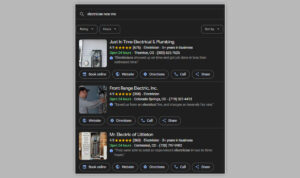Affiliate marketing is a popular way to make money online, but some marketers take risky shortcuts to boost their search engine rankings.
One of these shortcuts is using Private Blog Networks (PBNs). While PBNs might offer quick results, they come with significant risks that can harm your long-term success. In this article, we’ll explore why you should avoid using PBNs and focus on safer, more sustainable strategies.
-
Table of Content
Key Takeaways
Understanding Private Blog Networks
What is a Private Blog Network?
How Do Private Blog Networks Work?
Common Misconceptions About PBNs
Private Blog Networks for Affiliate Marketers
Quick Boost in Rankings
Control Over Anchor Texts
Instant Authority
Risks Involved in Using Private Blog Networks
Google Penalties
Deindexing of Sites
Long-Term SEO Damage
The Financial and Time Costs of Maintaining a PBN
Setup and Ongoing Maintenance Expenses
Time Investment Required
Group PBNs
What is a Group PBN?
The Dangers of Group PBNs
Why Group PBNs Fail in the Long Run
Avoiding the Trap of Group PBNs
Evergreen SEO Skills Over PBN Tactics
Creating Valuable Content
Improving User Experience
Building Genuine Relationships
White Hat Alternatives to Private Blog Networks
Guest Blogging
Creating Share-Worthy Content
Leveraging Social Media Platforms
Debunking Myths About Private Blog Networks
PBNs and Ranking Improvements
Quality vs. Quantity of Links
The Reality of ‘Control’
The Future of Link Building for Affiliate Marketers
Evolving SEO Practices
The Role of Quality Content
Sustainable Link Building Strategies
Conclusion
Frequently Asked Questions
Can using a Private Blog Network (PBN) get my site penalized?
Why are PBNs considered risky?
How do Private Blog Networks work?
What are the costs involved in maintaining a PBN?
Are there any benefits to using PBNs?
What are some white hat alternatives to PBNs?
Why does Google disapprove of PBNs?
Can PBNs cause long-term SEO damage?

Key Takeaways
-
Private Blog Networks (PBNs) are risky and can lead to severe penalties from Google.
-
Using PBNs can result in the deindexing of your sites, making them invisible in search results.
-
The long-term damage to your SEO from PBNs often outweighs any short-term gains.
-
Google disapproves of PBNs because they violate webmaster guidelines and manipulate search rankings.
-
Investing in white-hat SEO techniques, like creating valuable content and building genuine relationships, is more sustainable.
Understanding Private Blog Networks
What is a Private Blog Network?
A Private Blog Network (PBN) is a collection of websites created to link back to a main site. This main site is often the one you want to rank higher in search engines.
These backlinks are not naturally earned but are placed to trick search engines into thinking the main site is more authoritative than it actually is.

How Do Private Blog Networks Work?
PBNs work by purchasing expired domains that already have some domain authority. These domains are then filled with basic content and links pointing to the main site.
Think of it as a way to artificially inflate the importance of your main site in the eyes of search engines.
Common Misconceptions About PBNs
There are several misconceptions about PBNs that need to be cleared up:
-
Quick Fix: Many believe that PBNs offer a quick fix for SEO issues. While they might provide a temporary boost, the risks far outweigh the benefits.
-
Cost-Effective: Some think PBNs are a cost-effective way to improve rankings. However, the costs of purchasing domains and maintaining the network can add up quickly.
-
Safe to Use: A common myth is that PBNs are safe if done correctly. In reality, search engines are getting better at identifying and penalizing sites that use PBNs. That’s why I’ll never recommend it to my audience. Using PBNs can lead to a false sense of security, making it easy to overlook the importance of organic growth and sustainable practices.
Understanding these points can help you make better decisions for your SEO strategy.

Private Blog Networks for Affiliate Marketers
Quick Boost in Rankings
One of the main reasons affiliate marketers are drawn to Private Blog Networks (PBNs) is the promise of a quick boost in search engine rankings.
By creating a network of sites that all link back to your main site, you can rapidly increase your domain authority. This can lead to higher visibility and more traffic in a short amount of time.
Control Over Anchor Texts
With PBNs, you have full control over the anchor texts used in the backlinks. This means you can optimize the anchor texts to include your target keywords, which can further improve your search engine rankings.
This level of control is hard to achieve with organic link-building methods.
Reminder about what an anchor text is: An anchor text is the clickable, highlighted portion of a hyperlink that leads to another webpage. It’s usually displayed in blue and underlined by default.
The anchor text provides both users and search engines with context about the content or topic of the page being linked to.
For example, in the hyperlink “Check out this SEO guide,” the words “SEO guide” are the anchor text. Anchor texts play a crucial role in SEO as they help search engines understand the relevance of the linked page, but over-optimizing them, especially in PBNs, can raise red flags for search engines.

Instant Authority
Building authority in your niche usually takes time and effort. However, PBNs offer a shortcut. By linking from high-authority expired domains, you can instantly boost your site’s credibility. This can make your site appear more trustworthy to both search engines and users.
Using PBNs might seem like an easy way to get ahead, but the potential downsides can outweigh the benefits. Always consider the long-term impact on your site and business.
Risks Involved in Using Private Blog Networks
Google Penalties
One of the biggest risks of using a Private Blog Network (PBN) is getting penalized by Google.
Google considers PBNs as a form of link scheme, which is against their Webmaster Guidelines. If caught, your site could face severe penalties, including a significant drop in rankings or even complete removal from search results.

Deindexing of Sites
Another risk is the deindexing of sites within your PBN. Google can identify and deindex sites that are part of a PBN, rendering all the backlinks from those sites useless.
This means all the time and money you invested in building your PBN could go down the drain.
Long-Term SEO Damage
Using PBNs can cause long-term damage to your SEO efforts. While you might see a quick boost in rankings initially, the long-term consequences can be devastating.
Your site could lose its credibility, and recovering from a penalty can be a long and arduous process.
For a safer and more sustainable approach, consider focusing on evergreen SEO skills and white-hat tactics.
Listen to Neil Patel’s strong message and why it’s important to stop taking shortcuts.

The Financial and Time Costs of Maintaining a PBN
Set up and Ongoing Maintenance Expenses
Setting up a group PBN involves significant initial and ongoing costs. You’ll need to account for domain purchases, hosting fees, and site development across multiple contributors.
Once the network is operational, ongoing expenses like domain renewals, hosting, and regular content updates are unavoidable.
These costs can quickly escalate as the network grows, particularly with multiple sites in play.
Over time, the financial and time investment required to maintain a group PBN can become substantial, making it a continuous commitment for all involved.
Time Investment Required
Time Investment Required
Creating and maintaining a PBN is not just about money; it also requires a significant time investment.
From finding quality domains to setting up hosting and developing the sites, the time commitment can quickly add up.
For a small network, you’re looking at dozens of hours just for the initial setup. And that doesn’t account for ongoing maintenance, troubleshooting, or keeping content up to date. Managing a PBN requires continuous effort to keep everything running smoothly.
If you’re looking for a safer digital marketing strategies, join the FractalMax private VIP community. You’ll find valuable resources.

Group PBNs
What is a Group PBN?
Group Private Blog Networks (PBNs) are a controversial SEO strategy where multiple websites within a network are controlled collectively to manipulate search rankings.
In a group PBN, multiple individuals or entities collaborate, pooling their resources to create an artificial backlink profile across a shared network of websites.
By relying on a coordinated effort to deceive search engines, group PBNs risk damaging the credibility of all involved sites.
The Dangers of Group PBNs
While the perceived strength and scalability of group PBNs might seem attractive, the risks far outweigh any temporary gains.
Group PBNs distribute the risk across multiple IP addresses and domains, but this doesn’t guarantee safety.
Search engines have become highly sophisticated in detecting unnatural link patterns, and once a group PBN is flagged, all sites within the network can suffer heavy penalties. This method not only violates ethical SEO practices but also creates long-term instability for businesses relying on such tactics.
Why Group PBNs Fail in the Long Run
Managing a group PBN requires participants to maintain the appearance of high-quality, natural websites.
However, the collective nature of group PBNs makes them prone to inconsistency. With multiple contributors, the quality of content can vary, leading to low-value or spammy websites that raise red flags for search engines.
The lack of trust and control among participants can make group PBNs a ticking time bomb.
Avoiding the Trap of Group PBNs
Instead of relying on manipulative techniques like group PBNs, SEO success should be built on sustainable, white-hat strategies.
Quality content, organic backlinks, and user experience are the foundation of long-term rankings.
While a group PBN may offer a temporary boost, the long-term damage to a site’s reputation and potential ranking penalties far outweigh any short-lived benefits.
Search engines are constantly evolving, and methods like group PBNs are becoming more detectable and less effective.

Evergreen SEO Skills Over PBN Tactics
Creating Valuable Content
Instead of relying on risky Private Blog Networks (PBNs), focus on creating content that people actually want to read and share.
High-quality content attracts natural backlinks and keeps your audience engaged. This is a skill that will always be valuable, no matter how search engine algorithms change.
Improving User Experience
A good user experience (UX) can significantly boost your site’s performance. Make sure your site is easy to navigate, loads quickly, and is mobile-friendly.
Happy users are more likely to stay longer and convert, which sends positive signals to search engines.
Building Genuine Relationships
Networking with other bloggers and influencers in your niche can lead to valuable backlinks and collaborations.
Join communities like the FractalMax private VIP community to connect with like-minded individuals. Building real relationships can provide long-term benefits that PBNs simply can’t offer.
White Hat Alternatives to Private Blog Networks
Guest Blogging
Guest blogging is a great way to build links and gain exposure. By writing articles for other websites in your niche, you can get backlinks to your site.
This method is not only effective but also ethical. Make sure to target high authority sites for the best results.
Creating Share-Worthy Content
Creating content that people want to share is another excellent strategy. When your content is valuable, others will naturally link to it.
This can be blog posts, infographics, or videos. The key is to provide real value to your audience.
Leveraging Social Media Platforms
Social media platforms can be powerful tools for link building. Share your content on platforms like Facebook, Twitter, and LinkedIn to reach a broader audience.
Engaging with your followers can also lead to more shares and backlinks.
Using these white hat techniques, you can improve your SEO without the risks associated with Private Blog Networks.
Debunking Myths About Private Blog Networks
PBNs and Ranking Improvements
One common myth is that Private Blog Networks (PBNs) can’t help you improve your rankings. This isn’t entirely true.
While PBNs can give a quick boost in rankings, the gains are often short-lived. Over time, the risks outweigh the benefits, especially if Google catches on.
Quality vs. Quantity of Links
Another myth is that having a large number of links from a PBN is better than having a few high-quality links. In reality, quality always trumps quantity.
A few high-quality, relevant links will do more for your site than hundreds of low-quality ones.
The Reality of ‘Control’
Many believe that using a PBN gives you complete control over your SEO. While you can control anchor texts and link placements, this control is an illusion.
Google updates can easily devalue your PBN links, leaving you scrambling to recover.
The Future of Link Building for Affiliate Marketers
Evolving SEO Practices
SEO is always changing. What worked last year might not work today. As an affiliate marketer, you need to stay updated with the latest trends.
Link building is still valuable, but the methods are evolving. Focus on quality over quantity.
The Role of Quality Content
Creating high-quality content is more important than ever. Google rewards sites that provide value to users.
Instead of relying on risky tactics like PBNs, invest your time in creating content that people want to read and share.
Sustainable Link Building Strategies
Sustainable link building is the way forward. This means building links that will stand the test of time.
Here are some strategies:
-
Guest Blogging: Write articles for other websites in your niche.
-
Creating Share-Worthy Content: Make content that people want to share.
-
Leveraging Social Media: Use social media platforms to promote your content.
By focusing on these strategies, you can build a strong, long-lasting online presence without the risks associated with PBNs.
The future of link building for affiliate marketers is bright and full of opportunities. If you’re looking to stay ahead in the game, now is the time to act.
Our platform offers a done-for-you affiliate marketing business that can be launched in just 7 days. Don’t miss out on this chance to secure your spot and start earning high commissions. Visit our website to learn more and get started today!
Conclusion
In the end, using Private Blog Networks (PBNs) might seem like a quick way to boost your site’s SEO, but the risks far outweigh the benefits.
Sure, you might see some short-term gains, but the long-term consequences can be severe.
Google is always updating its algorithms, and getting caught using PBNs can lead to penalties that could tank your site’s rankings.
Instead, focus on building genuine, high-quality backlinks through methods like guest blogging, creating valuable content, and building relationships.
These strategies may take more time, but they offer lasting results and peace of mind. So, play it safe and invest in sustainable SEO practices that will stand the test of time.
Frequently Asked Questions
Can using a Private Blog Network (PBN) get my site penalized?
Yes, using a PBN can lead to penalties from Google. They consider it a form of link manipulation, which violates their guidelines.
Why are PBNs considered risky?
PBNs are risky because they try to trick search engines into ranking a site higher. If caught, your site could be deindexed or penalized, harming your SEO efforts.
How do Private Blog Networks work?
PBNs work by creating a network of websites that link back to a main site to boost its search engine rankings. These links are not earned naturally but are placed to manipulate rankings.
What are the costs involved in maintaining a PBN?
Maintaining a PBN can be expensive. Costs include buying domains, hosting, content creation, and ongoing maintenance to avoid detection by search engines.
Are there any benefits to using PBNs?
While PBNs can offer a quick boost in search rankings and give control over anchor texts, the risks usually outweigh the short-term benefits.
What are some white hat alternatives to PBNs?
White hat alternatives include guest blogging, creating high-quality content, and leveraging social media to naturally earn backlinks.
Why does Google disapprove of PBNs?
Google disapproves of PBNs because they violate their Webmaster Guidelines by creating artificial links to manipulate search rankings, which harms the integrity of search results.
Can PBNs cause long-term SEO damage?
Yes, relying on PBNs can cause long-term SEO damage. If penalized, recovering your site’s rankings can be difficult and time-consuming.
Source: fractalmax.agency



